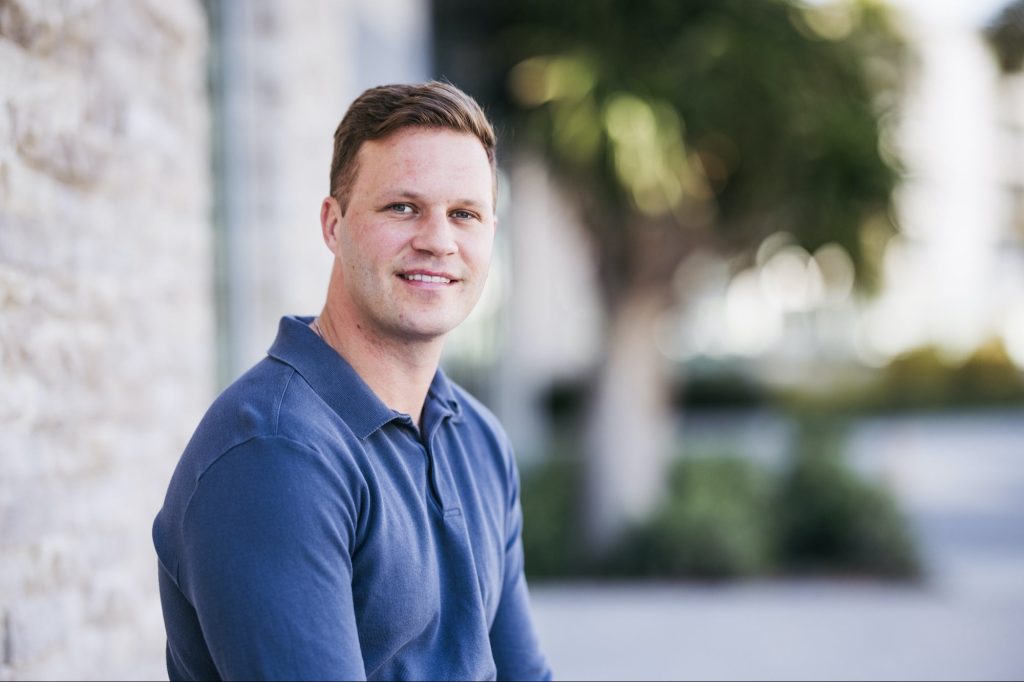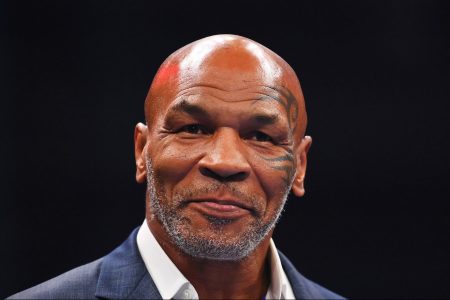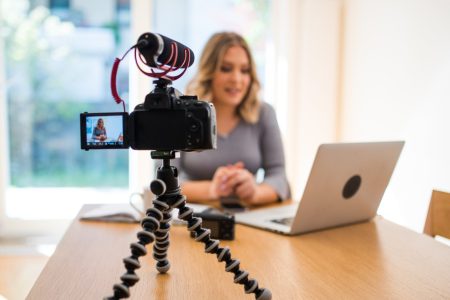Entrepreneur Ventures is an early-stage venture capital firm partnered with Entrepreneur Media that is dedicated to backing passionate and innovative founders as early as day one. In this series, we are profiling the amazing entrepreneurs that Entrepreneur Ventures is working with to share their insights on building and growing a thriving business.
Please give us the elevator pitch of your business.
My name is David Walsh, I’m the founder and CEO of Limelight. We’ve built this pioneering B2B creator collaboration platform that revolutionizes how B2B brands achieve virality. We help brands identify B2B creators who have built large followings for specific niches in business, and on the creator side, we recommend brands that are looking for creators via a recommendation engine and allows them to book advertising across all of their channels (LinkedIn, newsletters, podcasts, etc.) They find each other on the platform, manage the partnership and performance, as well as pay each other.
What inspired you to launch Limelight?
I have been in tech for 10 years and after exiting my last company, I took some time off and asked myself what I wanted to do next. Get into the venture race? Join another company? I landed on, “I want to be my own boss” and that narrows down your options! I’m from Ireland and was living in Los Angeles. I had high rent and expensive childcare, so I decided I’d better build something! I was very deliberate in my approach. I knew I wanted to launch a company in the revenue tech space because it’s very sticky. If you help a company grow, everyone will keep you on.
So I was posting content on LinkedIn to raise capital, build awareness and drive leads. And as I did that, I became aware of this whole ecosystem that exists, the B2B creator economy. These individuals have created large audiences, 50,000 up to 600,000, posting content every day on a specific niche. As we know, people who buy products today are greatly influenced by individuals they know and trust on their social media feeds. I realized, why don’t we build a product for these creators? So that’s what I did with Limelight.
How did you go about building it?
I raised the capital last year, closed around December and then told my new investors I was pivoting the business model. I rebranded the company and we spoke with about 100 B2B content creators in a period of four to six weeks and a few weeks ago came out with our beta. We’ve had over 100 companies sign up in less than 30 days, so the thesis is working.
Related: Need Something Fast? These Entrepreneurs Created a Fleet of Self-Driving ‘Stores on Wheels’ That You Can Hail With the Tap of a Button.
How is your team built out?
Sales, marketing, recruiting, finance, operations and products are my focus. But coding? That I can’t do. I found a really strong engineer who was previously at Uber and he is the fastest coder I’ve ever seen in terms of velocity and quality. And I have a really strong designer who’s a 23-year-old out of college, a phenomenal UI UX designer who just takes an idea, makes it an image, and then the developer develops it. So there’s three of us doing it right now. And it is moving insanely fast.
What advice would you give entrepreneurs seeking investment?
I think back to my experiences and the common denominator is that all dollars aren’t created equal. But before you think about who it comes from, it’s really important to think about how much you need. I used to think I needed as many millions as I could possibly get because I want to hit unicorn status and scale as fast as possible. Now I still think that I want to build an efficient scalable software business that still becomes a unicorn, but I don’t think I need as much money to do it. 2019 to 2022 taught me that more money equals more problems and it’s harder to scale.
So my advice is to calculate the amount you need to build and grow, then close the round as fast as possible because you can spend all of your time fundraising for a year and none of your time building the business.
Related: How This Entrepreneurial Couple Is Revolutionizing Brand Loyalty
You’ve written and spoken a lot about the power of hearing no. Can you explain that?
When I started out I was making tons of cold calls every day and I loved it. The first thing you learn in sales is rejection. And I’m teaching my team members today that we’re gonna get rejected all the time, so get used to it! Rejection is important because it builds up thick skin and also teaches you what your company can be doing to better serve your potential customers. I have a recorded note taker and every single sales call I make goes to my engineering team, and goes to my product team. I tag them and I say, listen to this because it’s the only way to make sure that you’re creating a feedback loop.
Did you always know that you wanted to be an entrepreneur?
When I was 19, my dad asked me what I wanted to do. I said, “I want to own a tech company when I’m 25.” So I had that ambition at an early age. I remember we were in a coffee shop and the rest of the people laughed at me. But I remember saying that, and I actually called him when I was 27 and told him I was two years late.
What advice would you give to young people with similar ambitions?
Grab those moments and windows of opportunity when you can do something unique and different. There is no age cutoff, but as you get older, you’ll have more life responsibilities that make the decision to jump into entrepreneurship more difficult. If I could do one thing, I’d go back to college and convince every single lecturer to talk about being an entrepreneur. You just have less risk at that age. Also, follow great leaders and managers — not big ideas. Surround yourself with the best and you increase your learning potential dramatically.
Related: All True Entrepreneurs Share This One Personality Trait, Says the Founder of Spicewell
We hear a lot about embracing tough times and needing grit to push past tough moments. You’ve had your share.
Yes. I moved to the United States from Ireland and I worked in Indeed. I loved my time there, but I knew I eventually wanted to start my own company, so I decided to launch an internal incubator in the company. I wrote an online playbook about how to help immigrants navigate the talent acquisition process on a visa. I had four student visas at this point and felt like I was an expert. So I turned that playbook into a pitch of building a remote marketplace of talent within Indeed and helping our customers hire non-US citizens. It got lots of traction and I presented it to the CEO and Chief Innovation Officer. It got funded with $250K, but then I was called into HR. They said they didn’t know I was on a student visa and basically that I couldn’t remain at the company because I was technically replacing an American worker’s job.
So your pitch to help people work in America got you kicked out?
Essentially, but I knew I could figure it out. I actually felt free. My wife thought I was crazy, but I felt like this was a good thing. I was able to use this story to raise my next round. I had my own business and was able to stay in the States. And wouldn’t you know it? Indeed’s venture arm reached out 3 years later to become an investor!
So I think everyone in their career gets setbacks. Things go sideways, and curveballs get thrown at you and I think how you react in that moment is the most important component. Too many people react very emotionally on the spot like the world’s ending. But if you’re able to focus on what’s 10 years from now and think that this happened for a reason, you can usually find your way to your greater goals.
Read the full article here








